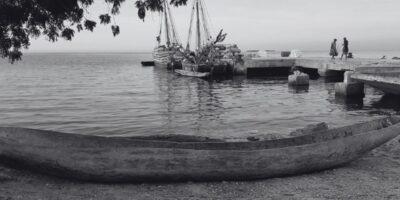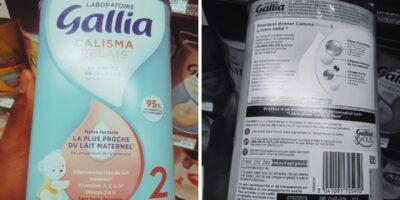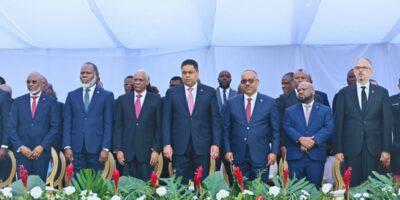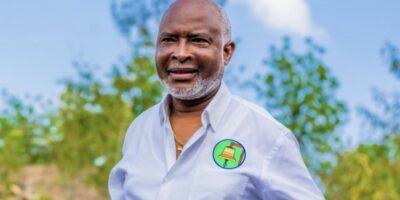The city of Cap-Haitien is working on the creation of its police force. The Delmas City Hall also has its own municipal police. At least one member of this armed group is accused of murder
It was in 2017 that the municipal council of Petit-Goâve issued a decree creating the municipal police of the town. About thirty agents are then recruited, in this city plagued by growing insecurity.
“The armed group called « Haute Tension » spread terror in the city”, said Jean Samson Limongy, former president of the Petit-Goâve municipal council. The main markets in the city of Faustin Soulouque could not operate”.
Limongy obtained arms and ammunition from the Ministry of the Interior and Territorial Communities. But the new force, like the Haitian National Police, far from providing a solution, is quickly making its way to the top of the list of serious problems in the locality.
Soon, abuses against civilians began to pile up. “Jerry Anderson Leconte, the head of the municipal police, had fired on members of the population, said Vickson Corrioland, the current mayor of Petit-Goâve. We’ve filed several complaints against him for violence”.
The 2006 decree on the functioning of local governments in articles 64, 134, 162, and 181 gives municipalities the right to create an administrative police force. Members of these entities may not carry weapons and must work in conjunction with the country’s law enforcement agencies, according to the decree.
In practice, however, heavily armed municipal police officers are added to the Haitian National Police (PNH) and the Armed Forces of Haiti (FADH) to form the public security forces of Haiti.
In a country plagued by insecurity that paralyzes almost all activities, experts are skeptical about the need for another armed force, beyond the parliamentary police or the Protected Areas Security Brigade.
Isabelle Fortin has worked for several institutions in the field of human rights in Haiti. With her colleague Yves-François Pierre, she conducted a study on the PNH in 2008.
According to the specialist, the arrival of a municipal police force only creates a new smaller autonomous power, just as is done with the various units of the PNH. « It’s like adding a quilt made up of miscellaneous pieces every time”, says the woman who holds a master’s degree in comparative literature.
“A heavily armed municipal police force to meet what needs? » asks Fortin. “It makes sense to put a public security structure at the local level. But how do you put in place a structure that respects human rights and doesn’t abuse power? «
The city of Delmas also has a police force called the Groupe d’Intervention de la Mairie (GIM). This group carries firearms. « All of the weapons of the town hall are legalized », Patrick Prudent, a member of the communication service of the municipality, asserts to AyiboPost.
The steps to obtain weapons were taken with the Ministry of Justice and Public Safety and the Ministry of the Interior and Territorial Collectivities, according to Prudent.
Members of the Delmas police force led by Wilson Jeudy often commit objectionable acts during their interventions.
In 2017, an agent killed a young man during an eviction operation in Delmas 65. According to information gathered by AyiboPost, the institution had covered the funeral expenses and the agent had been sanctioned.
AyiboPost’s requests for interviews with officials from the Ministry of the Interior went unanswered. The president of the National Federation of Mayors of Haiti (FENAMH), Jude Édouard Pierre, did not respond to AyiboPost’s calls.
Because of the abuses committed by the municipal police of Petit-Goâve, the new ad interim council appointed by the late President Jovenel Moïse issued a decree to demobilize the unit, revealed Vickson Corrioland, current mayor assessor of the town.
The three weapons (a 12-gauge shotgun, a T65, and a 9-millimeter gun) recovered from the agents’ possession, after an inventory, were entrusted to members of the Municipal Brigade, another unit created by the new council.
The judicial authorities of Petit-Goâve then intervened to confiscate these weapons after the head of the brigade, Paul Appolon Alias Cion, illegally opened fire on a citizen of the town.
The citizen that Appolon is replacing, Jerry Anderson Leconte, has a questionable past. He was arrested and incarcerated in 2008 at the National Penitentiary for his alleged involvement in kidnappings. He escaped during the 2010 earthquake. Leconte denies the charges and says he was the victim of a plot because of his political leanings.
In 2013, he was arrested again and sentenced to 33 months in prison for illegal possession of firearms and criminal conspiracy, a source in the judicial system of Petit-Goâve tells AyiboPost.
Jerry Anderson Leconte is currently under judicial supervision for death threats and arson. When contacted by AyiboPost, he did not answer his phone.
The city of Les Cayes created its own municipal police in 2017. It was an initiative led by mayor Jean Gabriel Fortuné, who died in the earthquake of August 2021. The structure is composed of about 20 officers, including former military, according to Etienne France, who was also a member of the council. These agents do not have weapons but have sticks. Their training is done with the help of the PNH and human rights organizations in the country, according to Marie Sylvie Rameau, who currently chairs the communal council of the city of Les Cayes.
According to the mayor, the number of officers is too low. For they are the ones who secure the administrative office of the mayor’s office and accompany the mayors during their trips.
The municipal council of Cap-Haitien is currently working on creating its own municipal police. Patrick Almonor, mayor of Cap-Haitien, announces that the structure will work under the supervision of the PNH.
« Until now, there has not been a well-defined framework at the level of the town halls regarding the organization of the municipal police, » explains Almonor. According to Almonor, the municipal agent’s scope of intervention must be defined so as not to interfere with the work of the PNH. « Some people in the PNH and the central government are opposed to the idea of municipal police, » admits Almonor.
According to Isabelle Fortin, when there are so many armed groups, it is certain that one will encroach on the work of the other. There will be a rivalry between those who have the means and those who do not. This will only exacerbate the problem of public safety in Haiti. The more weapons are used, the more dangerous they become, she says.
“And the more armed units there are, the easier it is to maintain chaos, » explains Isabelle Fortin. « Hence the interest in having a strong police force that can respond to the needs of the population ».
English translation by Didenique Jocelyn and Sarah Jean.
Cover picture : Jerry Anderson Leconte / TFEnfo







Comments